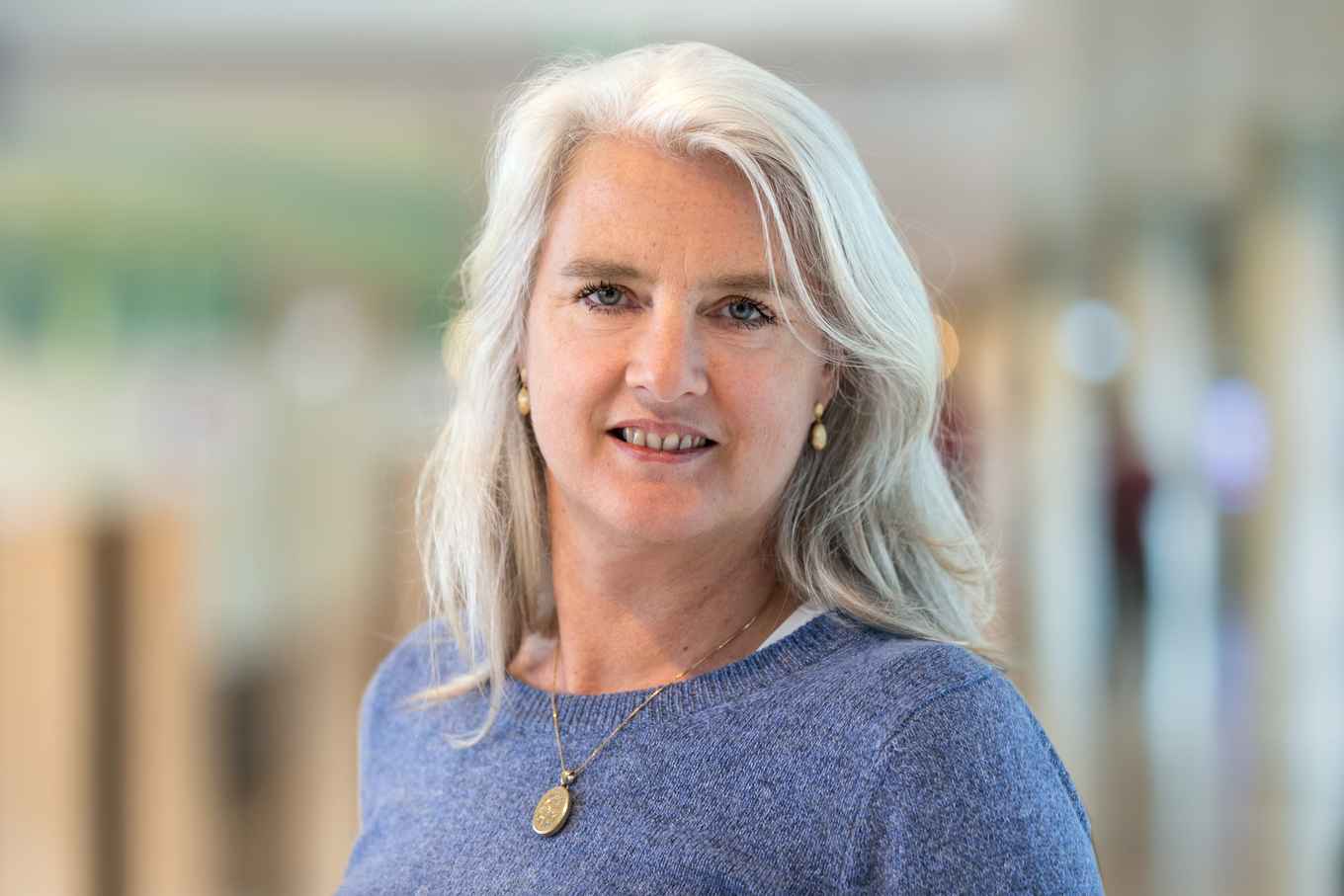Saskia Hogenhout, professor by special appointment of Molecular Plant-Microbe-Insect Interactions
11 December 2018

Saskia Hogenhout’s research focuses on understanding the mechanisms that drive interactions between plants and insects and the role of microbes in these interactions. She is particularly interested in aphids, whiteflies, leafhoppers and other sap-feeding insects of the order Hemiptera. The saliva of these insects contains virulence factors (effectors) that modulate plant responses and aid insect colonisation. The research focuses on the identification and functional analysis of these insect effectors and on finding their targets in the plant.
Hemipteran insects are efficient vectors of a diverse range of plant pathogens, predominantly viruses and bacteria. Leafhoppers transmit phytoplasmas, which induce dramatic changes in plant development, including proliferation of stems (witch’s brooms) and the reversion of flowers into leaf-like organs (phyllody). Phytoplasma induce these phenotypes via the secretion of effectors that interact with and degrade conserved (plant) proteins, including TCP and MADS-box transcription factors. The plants also become very susceptible and attractive to the insect vectors of phytoplasma. Hogenhout studies how phytoplasma effectors modulate plant defences to insects.
As professor by special appointment, Hogenhout will carry out some aspects of the above research in collaboration with various groups, particularly those of the Green Life Sciences Cluster of SILS and IBED.
About Saskia Hogenhout
Hogenhout has been a project leader at the John Innes Centre, Norwich, UK, since 2007 and Honorary Professor at the School of Biological Sciences, University of East Anglia since 2013. She is line manager of the John Innes Centre Entomology Facility, which has the capability to rear quarantine/exotic invertebrates and insect-vectored plant pathogens. Between 1999 and 2007, she was first assistant professor and then associate professor at The Ohio State University’s department of Entomology.
Saskia Hogenhout is a pioneer and leader in the field of Molecular Plant-Microbe-Insect Interactions (MPMII). Hogenhout made seminal discoveries and research advances on insect-microbe-plant systems traditionally viewed as non-tractable that dramatically reshaped fundamental knowledge and opened the door to translational opportunities. Her work and reputation span the fields of molecular genetics, entomology, plant pathology, virology and bacteriology, and more recently, also ecology and genomics.